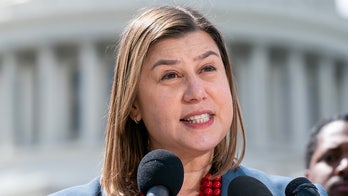Hillary Clinton won the Nevada caucuses. The turnout was massive, well above 115,000 and far and above any pre-caucus predictions (except those of Senate Majority Leader Harry Reid who was closer than anyone with a prediction six months ago of 100,000).
Massive turnout did not propel Barack Obama to victory, as it did in the Iowa caucuses. In two consecutive states (New Hampshire and Nevada), large turnout has lifted Clinton and lifted her where it matters most -- among core Democratic constituencies such as labor households, women, and Latinos and lower income households. Yes, Hillary had the support of most of the state's most prominent state and county Democrats and once led by as many as 25 points two months ago. Obama did close the gap and gave Clinton a tough race. But he still lost. Wins and losses leave consequences in their wake.
In politics generally and in this race particularly, some things matter more than others. Two-straight victories for Hillary based on core party voting blocks means more than the current stir here about Nevada's delegate allocation.
Right now, the Clinton and Obama camps are arguing over who won the most delegates in Nevada. The issue in Nevada is how delegates will be apportioned from urban centers and rural counties. Obama won 10 of Nevada's 16 counties and carried the sparsely populated rural counties by lopsided margins and thus may collect more delegates than Hillary, even though she won the turnout and precinct battle .
Nevada Democratic Party Chair Jill Derby disputes this and she should know. Here is Derby's statement: "Just like in Iowa what was awarded today were delegates to the county convention. No national convention delegates were awarded. The calculations of national convention delegates being circulated are based upon an assumption that delegate preferences will remain the same between now and April 2008. We look forward to our county and state conventions where we will choose the delegates for the nominee that Nevadans support."
Delegates matter in the big picture, but this dispute is a side-show and here is why: Nevada had 25 pledged delegates to allocate and either Clinton won 13 and Obama won 12 or just the opposite occurred. One delegate either way doesn't move the needle in any important way.
Whoever captures the Democratic nomination will need to win 2,025 delegates. Viewed in isolation, Nevada is a fraction of that amount. And a one delegate shift between 13 to 12 doesn't change the trajectory or strategy of this race nearly as much as Hillary's victory in the raw turnout and precinct-by-precinct contests.
Nevada is about momentum and electability. Hillary leaves Nevada with more of both than she arrived with. That's what matters. Hillary lost two things in Iowa -- the aura of inevitability and the sense that she was genuinely the most electable Democrat. With her New Hampshire and Nevada victories, Hillary can now more credibly assert she is at least as electable -- and possibly more electable - than Obama.
Clinton won the union vote here by carrying 7 of the 9 casino-based at-large caucus precincts even though the Culinary Workers Union endorsed Obama and applied intense last-minute pressure to mobilize their members on Obama's behalf. As The Bourbon Room observed before the caucuses commenced, there is every reason to believe the Culinary endorsement came too late to push Obama across the finish line first. It also means that Hillary arrived in Nevada with a pre-existing following among Culinary workers and their loyalty translated when and where it mattered most -- on caucus day and at their assigned precincts. That was especially true among Latino members of Culinary. Of today's caucus turnout, Latinos comprised 15 percent. Of those, 64 percent voted for Clinton and 26 percent for Obama.
The Latino vote in internal campaign polls before the race had a roughly 65 percent to 35 percent Clinton/Obama split. Notice, Clinton's actual performance closely matched the pre-caucus polls but Obama's did not.
It may be that the UNITE radio ad that described Clinton tactics here in the form of a law suit filed against the at-large precinct caucus sites as "shameless" and showing a lack of "respect" backfired on Obama. Of course, Obama's campaign had nothing to do with the content of the ad, but Obama could have denounced the ad's content as Clinton's camp requested. When it did not, Obama gave rise to the perception that he agreed with the ad script which both John Edwards and team Clinton regarded as malicious and out-of-bounds.
If the Nevada race reverberates anywhere other than South Carolina, it's in California. The Clinton campaign worked very hard to make sure Spanish radio and television were aware of her Latino outreach and the nasty nature of the UNITE radio spot. As one senior aide put it to The Bourbon Room, "we've been attached at the waist to Univision and Spanish radio for the last couple of days." Pro-Clinton surrogates with deep ties to the Latino community, Los Angeles Mayor Antonio Villaragosa and Delores Huerta chief among them, intend to leverage Hillary's strong Latino showing and the Obama-sanctioned hardball on Spanish radio. Why? To motivate Latino voters in California, the biggest prize by far on the 22-state Super Tuesday calendar (370 pledged delegates).
For these reasons, some things matter more in Nevada than delegate allocations. The Bourbon Room has attempted to listed the most important.




